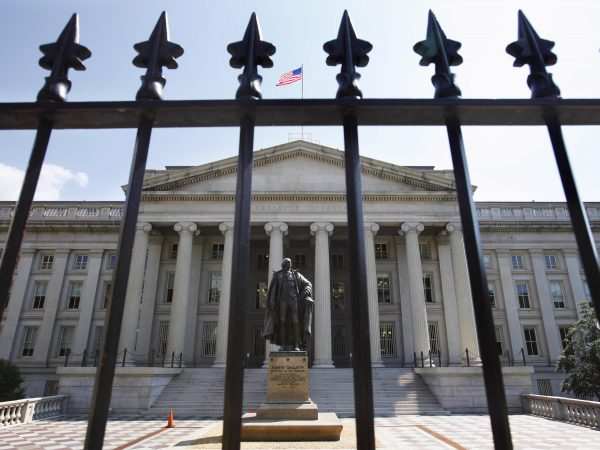
- Details
- By Levi Rickert
WASHINGTON — The U.S. Department of Treasury on Friday reversed the distribution methodology for $8 billion from the Coronavirus Aid, Relief, and Economic Security Act (CARES Act) that was put in place during the Trump administration.
Friday’s announcement could lead to settling a lawsuit filed by the Shawnee Tribe in June 2020 that disputed the Treasury Department's methodology of using the Indian Housing Block Grant (IHBG) program to determine population. While the announcement did not specifically name the Shawnee Tribe in its reversal, it did mention the lawsuit that is still pending. Two other tribes are part of the same legal action, the Prairie Band Potawatomi Nation and the Miccosukee Tribe, with the Shawnee Tribe.
Shawnee Tribe Chairman Ben Barnes told Native News Online on Saturday he has not spoken to the Treasury Department about the contents of the announcement released on Friday.
"Since I just found out of this today, I have not been able to discuss the matter with all concerned parties," Barnes said. "Our case is not resolved, and we fully intend to litigate the merits of our claims. We will continue to seek full remedy to ensure that the Shawnee Tribe and her people receive the funds that we are fairly entitled," Barnes continued.
Barnes said the Shawnee Tribe will have more comments once there are additional conversations internally with its legal team.
Other tribes also claimed in lawsuist that the Treasury's formula for calculation was flawed because some tribes had not received federal funding through the program. Therefore, their populations were counted as zero.
In the case of the Shawnee Tribe, its population is over 3,000 tribal citizens. The tribe received $100,000 — the minimum relief funding for tribes — versus the $6 million it would have received based on its official enrollment.
In all 25 tribes had their population listed as zero using IHBG numbers and many others were undercounted and were therefore given reduced CARES Act funds.
After President Biden assumed the presidency and a new Treasury secretary was sworn in, the Treasury Dept. began consulting with tribal nations to determine the funding methodologies for funds designated to tribes from funds available from the American Rescue Plan that was signed into law in March 2021.
However, during the tribal consultation process, several tribes voiced their concerns about moving forward without addressing the lingering issue presented in several lawsuits still pending in the federal court system.
The Shawnee Tribe was one such tribe.
According to Friday’s announcement, the Treasury Dept. will reallocate CARES Act funds to certain tribes.
“Treasury will determine the set of Tribes for which Treasury will provide an additional payment by calculating each Tribe’s ratio of IHBG formula area population to enrollment and then subtracting that ratio from 1. This is the Tribe’s population-to-enrollment ratio. The top 15 percent of Tribes as ranked by this ratio (i.e., the 85th percentile) will be eligible for an additional payment,” the announcement states.
More Stories Like This
Native News Weekly (August 25, 2024): D.C. BriefsUS Presidents in Their Own Words Concerning American Indians
South Dakota Hotel Owner Found Liable for Discriminating Against Native Americans
Monday Morning (December 22, 2025): Articles You May Have Missed This Past Weekend
Read What Our Year-End Campaign Donors Are Saying
Help us defend tribal sovereignty.
At Native News Online, our mission is rooted in telling the stories that strengthen sovereignty and uplift Indigenous voices — not just at year’s end, but every single day.
Because of your generosity last year, we were able to keep our reporters on the ground in tribal communities, at national gatherings and in the halls of Congress — covering the issues that matter most to Indian Country: sovereignty, culture, education, health and economic opportunity.
That support sustained us through a tough year in 2025. Now, as we look to the year ahead, we need your help right now to ensure warrior journalism remains strong — reporting that defends tribal sovereignty, amplifies Native truth, and holds power accountable.
 The stakes couldn't be higher. Your support keeps Native voices heard, Native stories told and Native sovereignty defended.
The stakes couldn't be higher. Your support keeps Native voices heard, Native stories told and Native sovereignty defended.
Stand with Warrior Journalism today.
Levi Rickert (Potawatomi), Editor & Publisher

